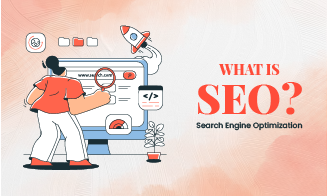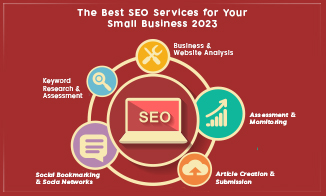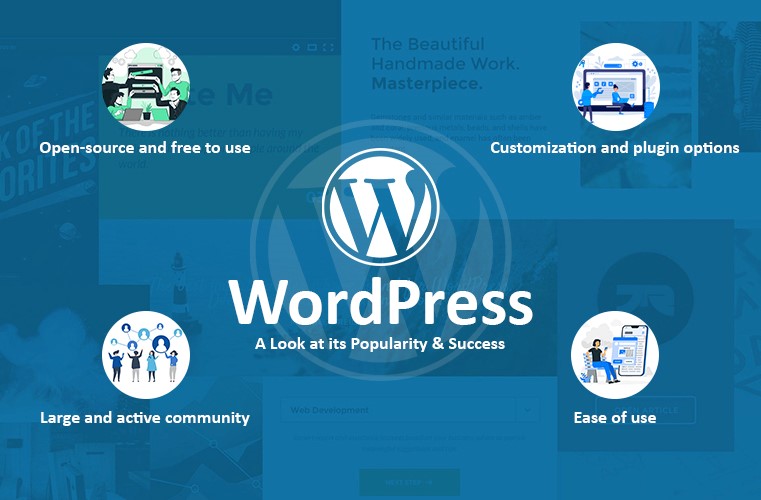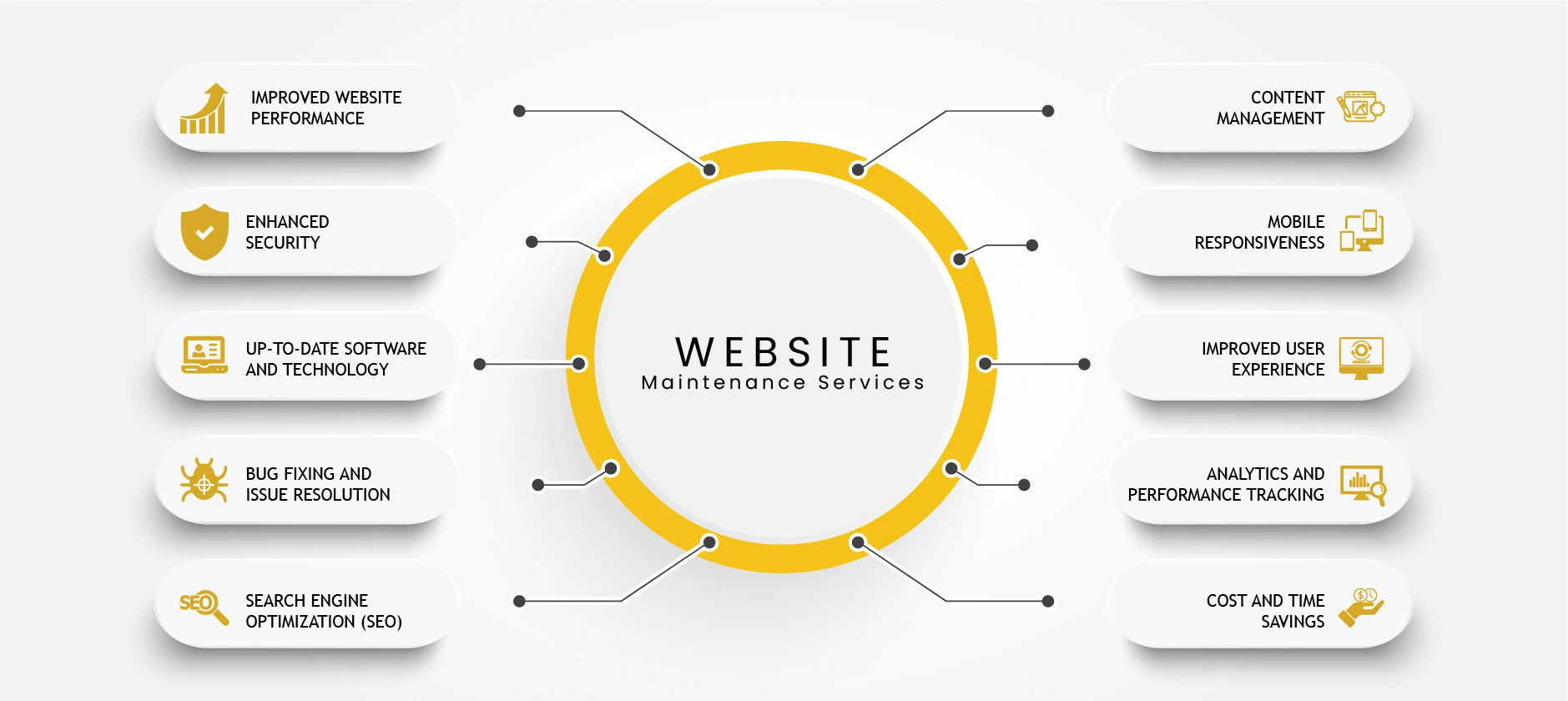
Your website is often the first point of contact between your business and potential customers. Ensuring that it remains functional, secure, and user-friendly is essential. This is where regular website maintenance comes into play, offering a proactive approach to managing your digital assets. Let’s delve deeper into why website maintenance is crucial and how a comprehensive strategy can benefit your business.
In-Depth Analysis of Website Maintenance Importance
- Security Enhancements: Websites are constantly threatened by cyber attacks, including malware, hacking, and data breaches. Regular website maintenance involves updating security protocols, installing the latest patches, and using firewalls to safeguard your site against these threats. Robust security measures are non-negotiable for businesses handling sensitive customer information, such as payment details. This not only protects your business but also builds trust with your customers, as they feel confident that their data is safe.
- Performance Optimization: Over time, websites can accumulate unnecessary data, outdated plugins, and scripts that slow down performance. Regular maintenance helps identify and resolve these issues, ensuring that your website loads quickly and functions efficiently. Performance optimization includes compressing images, minimizing code, and leveraging browser caching, all of which contribute to a better user experience. A faster website not only improves user satisfaction but also positively impacts your SEO rankings, as search engines favor sites that load quickly and run smoothly.
- Content Management and SEO: Fresh, relevant content is key to engaging visitors and maintaining good SEO rankings. Regularly updating your website’s content, including blogs, news, and product information, ensures that it remains relevant and valuable to your audience. Additionally, updating meta tags, keywords, and descriptions as part of your maintenance routine can enhance your site’s visibility in search engine results. This strategic approach to content management helps attract more organic traffic and keeps your audience informed and engaged.
- User Experience and Accessibility: A well-maintained website is more likely to provide a positive user experience. This includes ensuring that the site is mobile-friendly, has intuitive navigation, and is accessible to all users, including those with disabilities. Regularly testing and updating the user interface (UI) and user experience (UX) design elements are crucial for keeping your website aligned with the latest trends and technologies. A seamless and inclusive user experience not only helps retain visitors but also encourages conversions.
Strategic Approach to Website Maintenance

To fully leverage the benefits of website maintenance, it’s important to adopt a strategic and structured approach. Here’s how:
- Regular Audits and Updates: Conducting regular audits of your website helps identify areas that need improvement. This includes checking for broken links, outdated content, and potential security vulnerabilities. Schedule routine updates for all software, including the content management system (CMS), plugins, and themes, to ensure they are running the latest versions.
- Performance Monitoring: Use tools like Google Analytics and PageSpeed Insights to monitor your website’s performance. These tools provide valuable insights into how visitors interact with your site, highlighting areas where improvements can be made, such as page load times and bounce rates. Regularly review this data to make informed decisions about necessary changes and enhancements.
- Content Review and Optimization: Set a schedule for reviewing and refreshing your website’s content. This includes not only adding new content but also revising existing pages for relevance and accuracy. Optimize content for SEO by incorporating targeted keywords, updating meta descriptions, and ensuring that all images have appropriate alt tags.
- Security Measures: Implement a comprehensive security plan that includes regular backups, SSL certification, and monitoring for potential threats. Use tools like security plugins and firewall services to provide an additional layer of protection. In case of a breach, having a disaster recovery plan in place is crucial for minimizing downtime and data loss.
- User Experience Enhancements: Regularly test your website across different devices and browsers to ensure compatibility and usability. Gather feedback from users to understand their experience and make adjustments to improve navigation, design, and functionality. Accessibility should also be a priority, ensuring that your site is usable by everyone, including those with disabilities.
The Role of a Website Maintenance Company – Vibrant Info
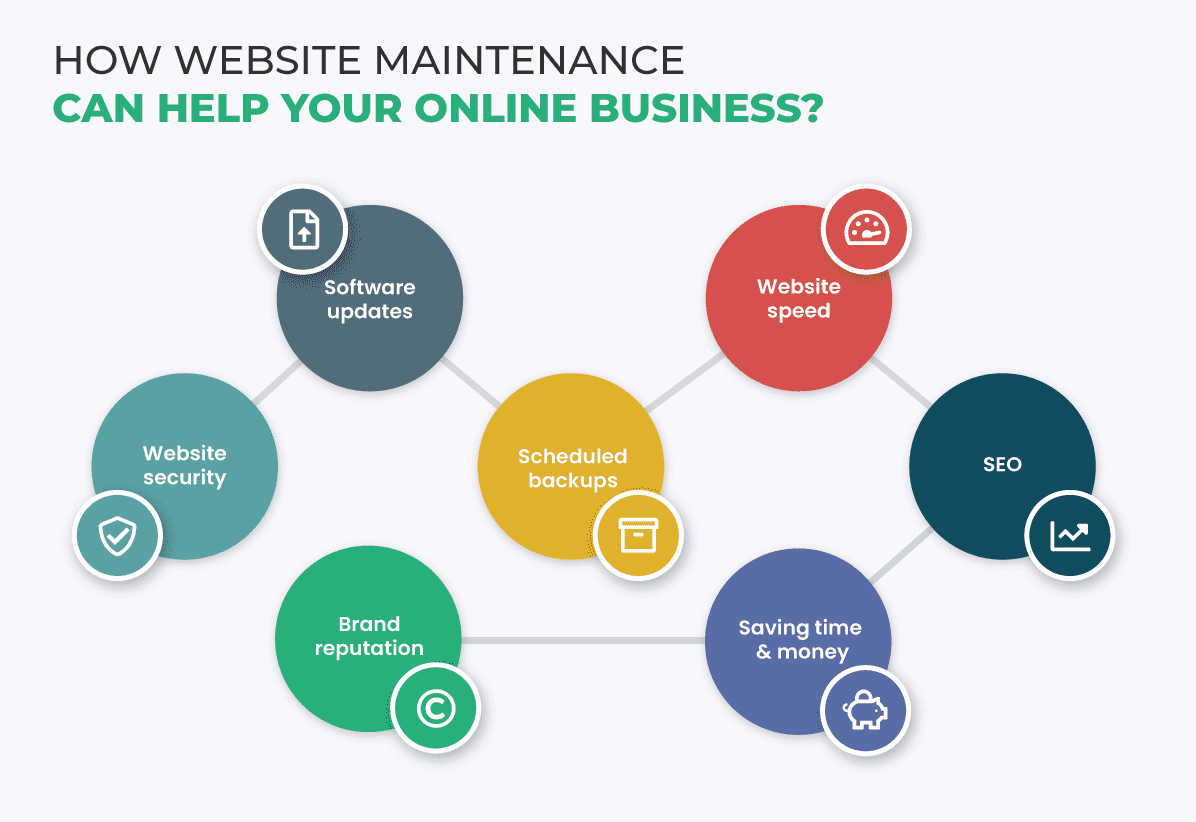
Hiring a professional website maintenance company like Vibrant Info ensures that your website receives the attention it needs to remain functional and competitive. Our team of experts is dedicated to providing personalized maintenance plans that suit the unique requirements of your business.
- Tailored Solutions: We offer customized maintenance packages that align with your business goals and budget.
- Expertise and Experience: Our professionals have extensive experience in managing websites across various industries.
- Continuous Support: We provide ongoing support and are always available to address any issues or concerns.
Website maintenance is a continuous process that plays a vital role in the overall health and success of your online presence. By implementing a comprehensive maintenance strategy, businesses can ensure that their websites remain secure, functional, and optimized for performance. Vibrant Info offers a range of website maintenance services tailored to meet the unique needs of each business, helping you maintain a robust and reliable online platform. Contact us today to learn more about how we can support your website maintenance needs and keep your digital presence thriving.
